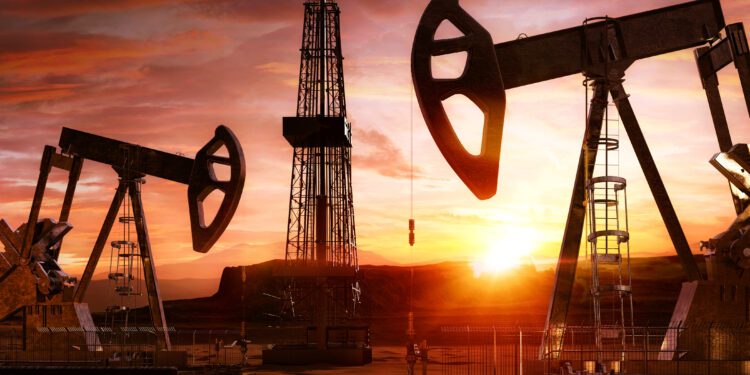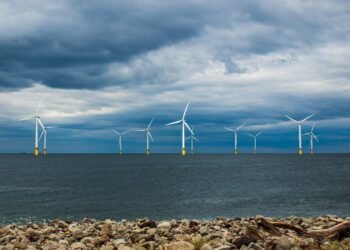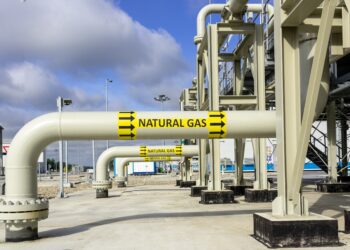In January this year, seemingly out of nowhere, US President Joe Biden made a decision that sent shock waves through the trillion-dollar global gas industry.
With the stroke of a pen, Mr Biden put a pause on approvals for any new project looking to ship super-chilled liquefied natural gas — or LNG — from US shores.
It was a decision that left many in the industry floored.
After all, within just a few short years America had rocketed from a position of having no LNG industry to being one of the world’s biggest exporters of the fuel alongside Australia and Qatar.
And it was a decision that has set off a political firestorm in the US, where energy and America’s insatiable needs for it are looming, as ever, as a critical issue in an election year.
Underlying that decision, however, was a landmark report that has cast fresh doubt over the supposed environmental benefits of gas compared with coal.
Gas emissions ‘worse than coal’
It’s a study that has raised fresh questions over the role of gas as a bridge to a renewable energy future.
The peer-reviewed study by Robert Howarth, a professor at Cornell University, found American LNG, at least, was worse than coal when it came to emissions.
Specifically, the report found greenhouse gas emissions from LNG were 33 per cent greater than those related to coal when measured over a 20-year timeline.
And at the heart of Professor Howarth’s finding was not carbon dioxide but, rather, methane, a far more potent greenhouse gas.
“Even though carbon dioxide emissions are greater from burning coal than from burning natural gas, methane emissions can more than offset this difference,” Professor Howarth wrote in the paper.
“As a greenhouse gas, methane is more than 80 times more powerful than carbon dioxide when considered over a 20‐year period and so even small methane emissions can have a large climate impact.”
According to Professor Howarth, at every point along the chain of gas production methane was found to be leaking.
From extraction of gas at the well to liquefying it through chilling; from the transport on specially designed ships to its regasification and distribution in pipes when unloaded — in each step methane escaped into the atmosphere.
It was particularly pronounced in the US, where he noted that most of the LNG came from fracking, a process in which huge volumes of water are pumped underground to fracture rock containing the gas.
As a result, Professor Howarth estimated as much as five per cent of the gas for an LNG project in the US was lost as leaked methane.
So significant was the heating potential of methane, Professor Howarth said, the gas may have added “0.5°C of the total global warming to date since the late 1800s”.
By comparison, he said warming directly associated with carbon was 0.75°C.
“The rate of global warming over the next few decades is critical, with the rate of warming important in the context of potential tipping points in the climate system,” he wrote.
“Reducing methane emissions rapidly is increasingly viewed as critical to reaching climate targets.
“Increasingly, leaders on global climate policy are calling for a rapid move away from all fossil fuels, including natural gas and not just coal.”
The report from Professor Howarth — and the decision by President Biden to pause LNG project approvals — comes after a period of extraordinary growth for the industry.
Uproar in the gas industry
Given the dependence of so many countries on imported LNG, oil and gas bosses have lashed the White House’s move to hit the pause button on new exports.
Last month, the boss of US energy behemoth Chevron attacked the decision in a broader swipe at the Biden administration’s policies.
Chevron chief Mike Wirth said the administration’s policies were “undermining energy security” and putting “politics over progress”.
What’s more, he claimed they would slow the transition away from coal by reducing the supply of natural gas and, in doing so, push up emissions.
“When it comes to advancing economic prosperity, energy security and environmental protection, an LNG permitting pause fails on all three,” Mr Wirth told attendees to the Gastech conference in Texas.
Canadian chemical engineer and energy expert Paul Martin offered a nuanced view.
In a note he recently republished to his social media followers, Mr Martin argued gas needed to be compared with coal on broader grounds than those related purely to emissions.
Mr Martin said that unlike gas, burning coal for electricity produces “devastating pollution” as the particulates and heavy metals such as mercury and sulphur it releases can kill.
Similarly, he said it was true that, on a like-for-like basis, burning gas for electricity produced about half as much carbon as coal.
What’s more, Mr Martin said some of the assumptions made by Professor Howarth were open to debate, such as his estimate that 2.5 per cent of LNG leaked as methane from the pipes and distribution networks of gas companies.
“Howarth’s figure is based on an average for the gas industry, including antiquated cast iron gas distribution systems in east coast US cities,” Mr Martin wrote.
“Power plant gas losses are going to be quite a bit lower than 2.5 per cent, and that’s half the total leakage right there.”
However, Mr Martin said gas could only be considered a better fuel for reducing global warming if the leakage of methane was ignored.
Similarly, he said such generous views rested on optimistic assumptions about the warming effect of methane.
While methane lost much of its potency when measured over a 100-year time-frame, he said it was 86 times’ more potent than carbon over a 20-year horizon — a time when action to reduce global warming would be most pressing.












